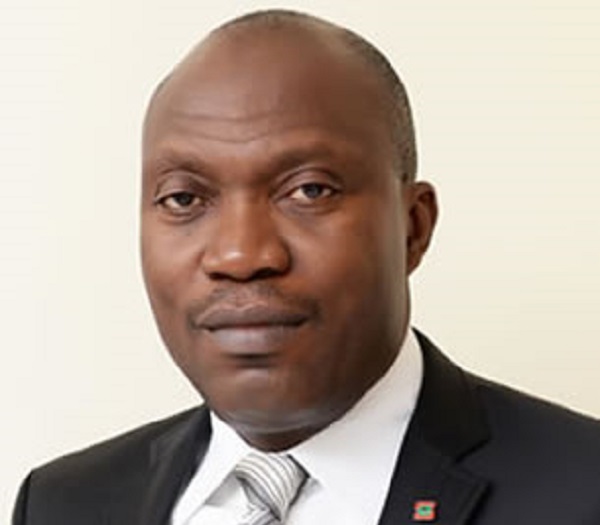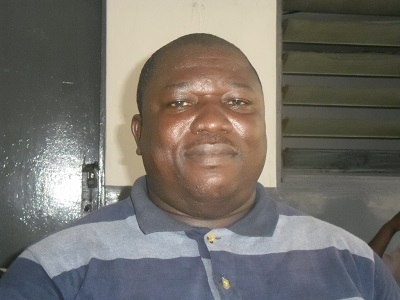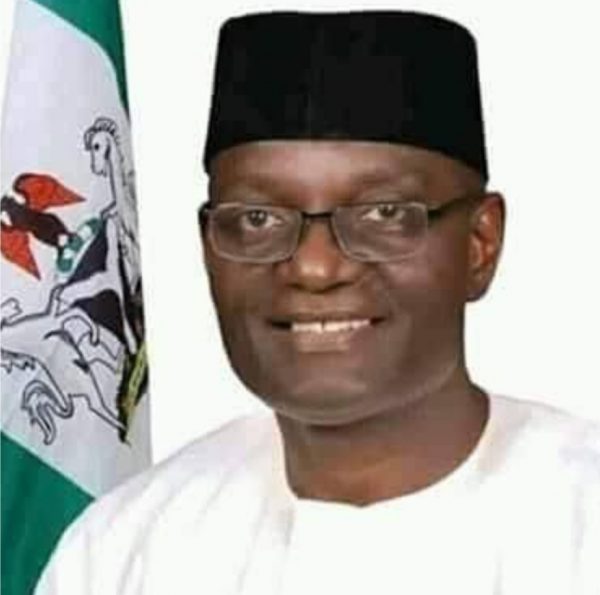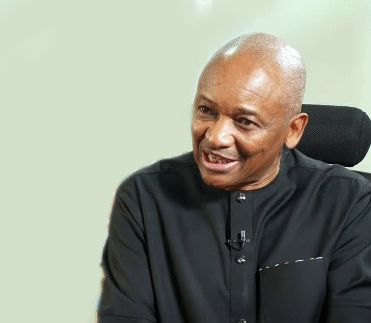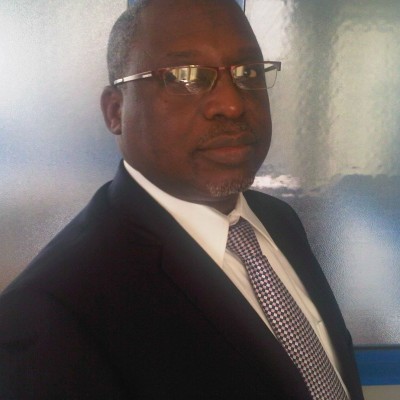How Changes In Global Crude Oil Market Would Rock Nigeria’s Economy -Chukwu
By Kenneth Jukpor
Mr. Johnson Chukwu is the Managing Director of Cowry Assets Management. In this interview with MMS Plus newspaper, he discusses the fiscal opportunities and challenges in Nigeria for the second half of the year; highlighting the effects of the upcoming election. He also addresses pertinent issues in the nation’s maritime sector and analyses the changes in the global crude oil market and the implications on Nigeria’s economy. Excerpts:
What postulations would you make as the nation’s business outlook for the next half of 2018?
The business outlook for the second half of the year looks a bit cloudy because the nation is moving into a period where economic activities would be dominated by political activities. We know that in the second half of a year preceding an election political actors focus more attention on how to win the upcoming elections instead of how to run the economy. Based on the political outlook, one can deduce that the economic outlook would be tainted by what happens in the political space.
It is also important to look at the various sectoral performances. In the oil and gas sector, we have seen a gradual reduction in crude production. As at May, the production declined to 1.7 million barrels per day lower than the 1.8 million barrels produced in January 2018. Since January, we have seen a gradual decline which is a result of the breach of crude pipelines by the militants. One could also deduce that there is gradual increase in the level of militancy in the Niger-Delta region of the country which is affecting the country negatively on crude production. This trend might worsen as we move towards the election period as the militants may want to extract political favours and recognition.
In addition to that, we have seen that the US government has reached an agreement with the Saudi Arabian government, for Saudi to increase its crude production by about 2million barrels. While the 2million barrels may be too optimistic, I project that the Saudi government can increase production by as much as 1million barrels per day. It is also important to note that Organization of the Petroleum Exporting Countries (OPEC) members and non-OPEC members including Russia, recently agreed to increase their production quota by 1 million barrels. So, we should be expecting about 2 million barrels of oil coming into the market and the US is also considering lifting the sanctions on Iran as it relates to crude production. With all these factors, one would expect that crude prices would plummet as more volumes come into the market. So, we should expect that foreign earnings coming from crude export would slow down in the second half of the year and this would have direct impact on the nation’s foreign reserve and direct impact on the exchange rate.
On inflation; I project that the inflation rate would reverse the current decline we are seeing or at a minimum stop the decline. Nigeria’s inflation rate at 11.23% for the month of June 2018 declined from the 11.61% reported in May 2018 which also dropped from 12.48% in April. As the electioneering moves affects the economy and government begins disbursement of the budget for capital expenditure, we may see a more significant reverse figures July would soon be released.
With the delay in passage of the annual budget lingering until July, how would its passage affect nation’s fiscal outlook?
One market that would be prominently affected is the capital market. We saw the capital market close the first half of the year at a marginal gain of 0.09%. I think the bearish trend is likely going to be sustained.
However, we have seen the exit of several foreign portfolio investors; while the local investors are expected to take up the space of the foreign investors. As the elections draw nearer, investors would under-weigh their portfolios in variable income assets and convert them to physical assets. We would observe a move from equities to fixed income earnings like treasury bills and bonds. The implication also as it relates to physical instruments is that we should expect further decline in yields even as prices go up in fixed income assets because of the preference of fixed income portfolios by local investors who are flying to safety ahead of an election period.
The real estate sector would also be affected by this development and I expect a lot of assets to hit the market as the political race heats up. Politicians would want to sale these assets so as to meet their election expenditure. The prices of real estate properties would decline in the next couple of months.
In terms of the general outlook, I think the Gross Domestic Product (GDP) growth rate would remain neutral or even decline. However, we can expect the GDP growth rate to moderate as the government takes its sight away from economic management to political activities. On a balance, the business outlook for the second half of 2018 is crowded by the political environment.
MTN’s imminent launch of Initial Public Offering (IPO) has been tipped to shake the nation’s fiscal environment. What should we expect?
There are two paramount issues to consider first. One of them is whether MTN would still be able to come to the market in this fiscal year. According to the Securities and Exchange Commission (SEC), MTN hasn’t submitted its application for its proposed offer to be considered. This means that MTN is running out of time to get listed this year. If a major offer of over N100billion is coming into the market and it doesn’t come earlier than August, then it might be difficult for one to believe that MTN wants to come into the market in the last quarter of 2018 at a time when the political parties would be conducting their primaries and the electioneering campaigns have started. I think the window for MTN to get listed this year is closing as it is limited to end of August or early September. Otherwise, I don’t imagine such a big offer hitting the market for equities at such a time.
The impact of MTN’s IPO would be that the organization would be the most laudable stock on the exchange. However, the stock market is going through a bear run as individuals aren’t putting a stake in equities so this isn’t the time when IPO should be brought into the market. Initial Public Offering should come into the market when the market is exuberant and on a bull run. It is on this basis that I doubt the possibility of MTN listing in this fiscal year.
Moving away from the impact of the upcoming general elections of the economy; how would the passage and implementation of the 2018 budget affect the business activities in the country?
The relevant component of the budget as it relates to the economy or economic prospect is the disbursement of the nation’s capital expenditure of N2.87trillion. The recurrent expenditure budget of N3.52trillion is already been spent as it was incurred through the passage of time. I don’t expect the recurrent budget to have a lot of impact because it staggered over a period of time.
However, the disbursement of the N2.87trillion capital expenditure budget which the government should have started spending, should inject a level of liquidity in the system. The government would do all it could to fast-track the disbursement because it also needs the funds disbursed if it hopes to achieve massive infrastructural development in various projects ahead of the upcoming elections. These projects would be used as points for campaign during the elections in 2019. We should have increased liquidity in the banking system and the forex market. We could see pressure on the exchange rate as a result of the lower currency liquidity and a situation whereby the rate at the parallel market would move northwards. In terms of credit, I don’t see banks been bullish just before an election so they are going to remain tight.
At the Lagos ports, there is crisis as the cost of trucking containers to other parts of the nation has tripled as a result of the gridlock coupled with the recent 6-day strike by truckers at the ports. What’s your view on this fiscal constraint on importers and freight forwarders?
As a country, what we practice in terms of trucking isn’t obtainable anywhere in the world. It beats my imagination that Nigeria hasn’t succeeded in building truck parks with the level of the nation’s economy. There could be truck parks in areas like the Ikorodu road after Mile 12 and with the aid of technology the trucks that are needed at the ports would be called into the ports. Ikorodu is an area that is free and it would take 30-45 minutes to get to Apapa from Ikorodu. So, the idea of trucks lining upon the bridges compromising the integrity of the bridges is unheard of anywhere in the world.
The issue of the strike isn’t unconnected to the traffic gridlock and other challenges at the ports. There is no complexity is giving out lands or concessioning lands for the private sector to build and manage truck parks which could also serve as holding bays for trucks. With appropriate technology, the trucks to load and the time of loading could be programmed so that the truck could be stationed far away from the port but move to the port when needed.
Trucks should only approach the ports at their scheduled time. I don’t know of any country in the world where trucks line up on the highways and on bridges that weren’t built to carry such weight. Apapa as a town has almost collapsed because only few people want to have offices there because navigating into the area by road is almost impossibility. This would continue to have huge implication on manpower losses and more problems like demurrage and increased cost of doing business at the ports. Trucks spend more than two weeks to pick up containers and exit the ports and this leads to the problem shipping companies have with the return of their empty containers. This problem also spills to the seas as there is a queue at the seaport waiting to discharge. That waiting time comes with fiscal implication as the cost has to be passed to someone. If Nigeria doesn’t make it’s maritime environment business friendly, it would not only lose foreign investors but local investments would also be stifled.

